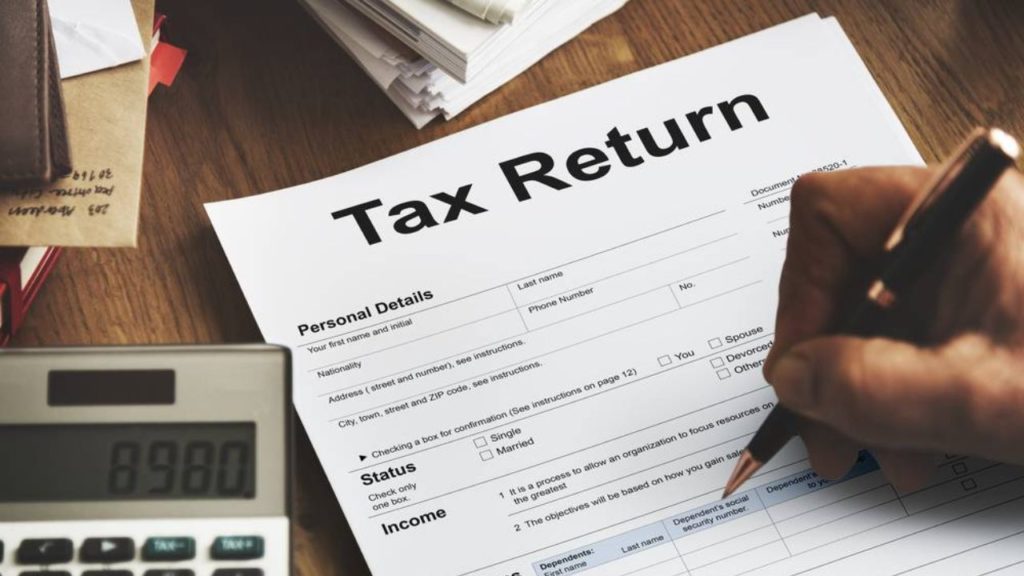Tax Return Filing: To avoid unnecessary stress, delays, and fines, it’s better to file your tax return early.
Table of Contents
You might think that tax returns are only for the self-employed and ultra-high earners. The government has frozen tax thresholds and cut dividend and capital gains allowances, so more people will have to complete self-assessment tax return forms this year.
The higher interest rates will also result in many savers paying tax on their savings income for the first time.
Generally, basic rate taxpayers can earn up to £1,000 in savings income before paying tax. As soon as you hold £20,000 or less in your savings account, you could be in the threshold since many savings providers now offer inflation-busting rates of 5% or more.
Many people fall foul of the taxman because they do not know that they owe money.
Tax Return Filing: A Step-by-Step Guide and Best Timing Tips
Unless you’re a very high earner, you probably don’t need to file a tax return if your only source of income is your salary.
Through a process called “pay as you earn” (PAYE), your employer will deduct your income tax from your salary before you receive it.
A self-assessment tax return may be required if you also earn income from savings, investments, a business, a second home, or another source. We take a close look at the rules.
You must file a tax return if you own a business or are a partner.
If you owe taxes but can’t pay them in full by the #IRS deadline, still file your tax return. Find out more: https://t.co/QVfOi0XtY0
— IRSnews (@IRSnews) April 11, 2024
If you earn more than £12,570, you must file a tax return. However, most people can earn up to £1,000 in tax-free interest on their savings.
The tax year 2023-2024’s allowances have been reduced from £6,000 to £3,000 and £500 respectively. If you exceed these thresholds, you must file a tax return.
The tax on capital gains is paid when investments are sold, and losses can be deducted to lower the tax bill.
Also Read: Yorkshire Building Society 99% Loan-to-Value Mortgage Is Here, Is a Low Deposit Loan a Smart Choice?
The first £1,000 of rental income is tax-free if you own the property personally. If you own the property as a business, rental income is subject to tax.
A tax return is required if you earn between £1,000 and £2,500 a year after allowable expenses or if you earn between £2,500 and £9,999 before allowable expenses.
When you have multiple properties and run them as a buy-to-let company, the rules are different. This article examines the pros and cons of this approach for buy-to-let landlords.
Up to 338,000 taxpayers will be able to simplify the tax return process when the self-assessment form is abolished in the 2024-2025 tax year.
Parents who pay child benefit but aren’t eligible for the full amount are subject to the rule because child benefit payments are means-tested and are only paid to families where the highest-earning parent earns less than a certain amount.
It has been criticized for being unfair that child benefit payments are based on the higher-earning parent’s income. The government is looking into further reforms to address this problem.
Families with one parent earning £61,000 and the other earning nothing will receive less child benefit than those with two parents earning £59,000. In addition, HMRC advises individuals that other untaxed income, such as Covid-19 support payments, tips and commissions, or foreign income, may require them to submit a tax return.
Also Read: Today Mortgage Rates On April 11, 2024: A Comparison Of 30-year Vs15-year Mortgage Rates
What is the process for filing tax returns?
You must register with HMRC by 5 October 2024 if you have never filed a tax return before. Once you have registered, you will receive your Unique Taxpayer Reference number.
You will need to re-register with HMRC if you registered previously but did not file a tax return last year.
You can file your tax return online or on paper. The deadline for the former is 31 January 2025, while the deadline for the latter is 31 October 2024.
If you have an employer reference code (if you have one), you’ll need to include your name, address, date of birth, National Insurance number, and 10-digit Unique Taxpayer Reference number.
If you’re filling out the form, you’ll need your P60, bank statements, student loan statements, and investment statements.
How Should You Deal with Not Filing Your Taxes on Time?
If you owe the IRS money, it might be tempting to wait until the last minute.
It’s easy to make mistakes in a rush, like overlooking money-saving deductions.
You can also run out of time while preparing your tax return, miss the deadline, and file your return late. That’ll cost you more, since the IRS may charge penalties.
Also Read: Chase Introduces Bonus Rate on Savings Account: Are You Eligible?
How Do You Deal With Missed Deadlines?
When you are unable to meet the mid-April filing deadline, you can request an extension through your tax software or by mailing the extension application form, Form 4868.
Unless you get an extension, your tax return is due on October 15.
Your payment is still due by the tax deadline, so if you don’t pay by then, you’ll get a failure-to-pay penalty every month until you do.
Some states, like New York, require you to file a separate extension form for your state tax return.
How soon should you file your tax return?
To file an online return, you have until 31 January 2025. To file a paper return, you have until 31 October 2024.
The 2023/2024 tax year has now ended, so you can submit your tax return now if you want to get ahead. It is usually a good idea to act as soon as possible to avoid unnecessary delays and stress, as well as to leave time for any questions you might have.
During its opening hours (Monday to Friday, 8am to 6pm), HMRC’s self-assessment helpline is available on 0300 200 3310 if you experience any difficulties.
You can put off your paperwork no longer, since HMRC recently reversed its decision to close the helpline between April and September.
Also Read: Latest Update on UK Mortgage Rates: What You Need to Know? Check Now


